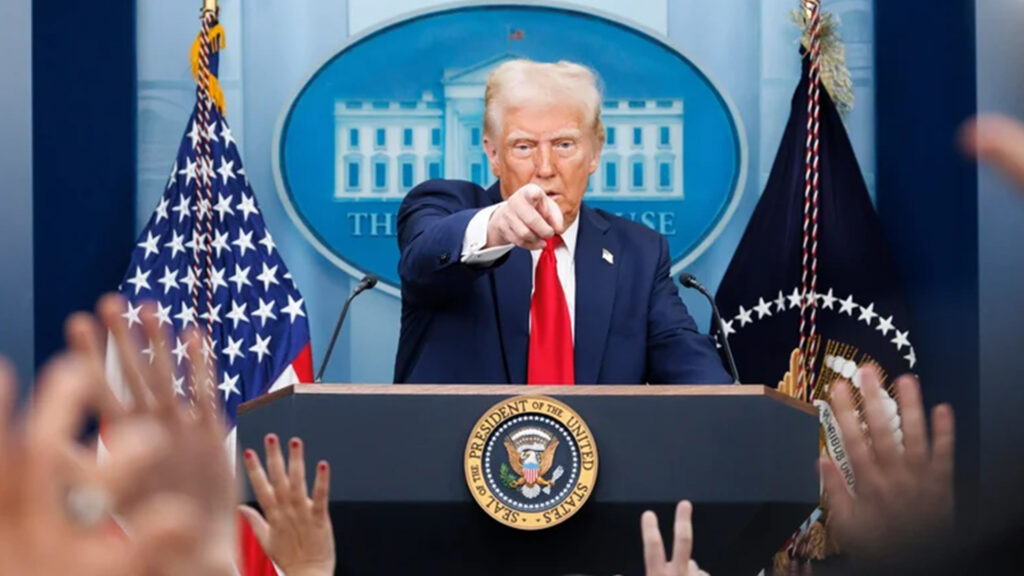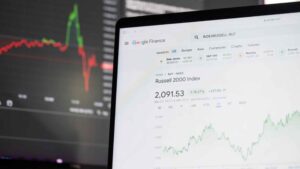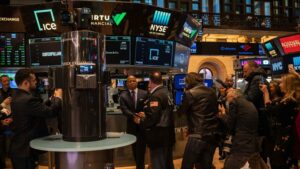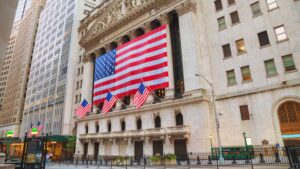President Trump has been making some important moves this past week impacting the US economy, trade policies and business changes. Trump started the week by nominating the new commissioner for the Bureau of Labor Statistics, announcing new trade developments and meeting with corporate leaders.
New BLS Commissioner
President Trump announced on Monday, August 11th that a new commissioner will take over the Bureau of Labor Statistics. That person is E.J. Antoni, Chief Economist at the Heritage Foundation.
His nomination for Antoni comes after Trump fired the previous BLS commissioner, Erika McEntarfer, after a weak NFP report for July. Antoni’s nomination still requires a Senate vote. ⁽¹⁾
Meeting with Intel CEO Lip-Bu Tan
President Trump also met with Intel CEO Lip-Bu Tan, alongside Commerce Secretary Lutnick and Treasury Secretary Bessent. The meeting came after Trump’s demand for Tan’s resignation due to his concerns with China. Trump described the meeting as interesting and noted CEO Tan as a success. ⁽²⁾
An Intel official stated Tan’s commitment to US manufacturing and technology. Tan became CEO of Intel after replacing Pat Gelsinger when the chipmaker struggled in AI innovation and its chip segment. Intel was also burning cash to build its foundry business for chip manufacturing. ⁽³⁾
Tan has been an Intel director since 2022. Last week, Senator Tom Cotton questioned Tan’s ties to China. Cotton brought up a past criminal case involving Cadence Design, where Tan had been CEO, and asked whether Intel required Tan to divest from positions in chipmakers linked to the Chinese Communist Party, the People’s Liberation Army and any other concerning entities in China. ⁽⁴⁾
Trump Exempts Tariffs on Gold Imports
This week, President Trump announced that gold imports will not be targeted by tariffs, revoking a US Customs and Border Protection ruling. The ruling had imposed a 39% tariff rate on 1kg and 100-ounce gold bars from Switzerland, which are used in COMEX for metals trading. Switzerland warned that these tariffs could have disrupted the global flow of gold. ⁽⁵⁾
Another 90-day Pause for Tariffs on China
President Trump also delayed new tariffs on Chinese goods for another 90 days, which extended the deadline to November. Tariffs were set to resume on August 12th, which would have led to a tariff rate of 145% on Chinese goods, matching the April rate during the height of the US-China trade war. Both countries agreed to a truce to lower tariff rates in May, with a tariff rate of 30% on China and a tariff rate of 10% on the US. ⁽⁶⁾
A delay was the expected outcome from the latest round of talks between US trade negotiators and their Chinese counterparts, which took place in Stockholm in late July.
Business and Trade Strategy
The Trump Administration has taken a strong stance on the semiconductor sector, which is important to the US-China competition in AI innovation. Nvidia announced that the company agreed to pay a 15% charge to the US government for sales of its H20 chip to China, where the rate has fallen from 20%. Nvidia CEO Jensen Huang met with Trump on August 8th and negotiated the deal. ⁽⁷⁾
Trump’s trade and business strategy indicates his focus on supporting US manufacturing and technology dominance. However, unpredictable trade policies and intervention in major companies could spark debates about their impact on businesses and global trade.
Sources: ⁽¹⁾ ⁽²⁾ ⁽³⁾ ⁽⁴⁾ ⁽⁵⁾ ⁽⁶⁾ ⁽⁷⁾ CNBC



